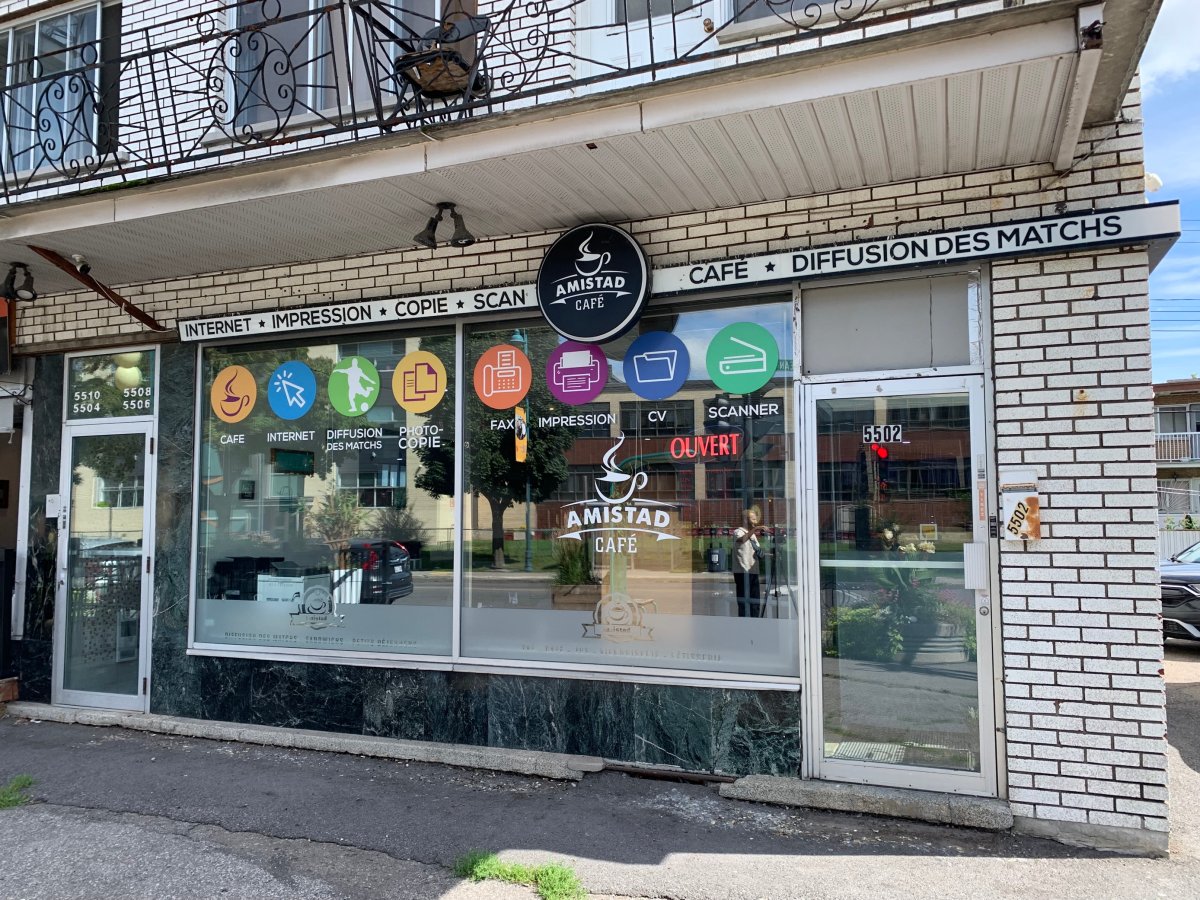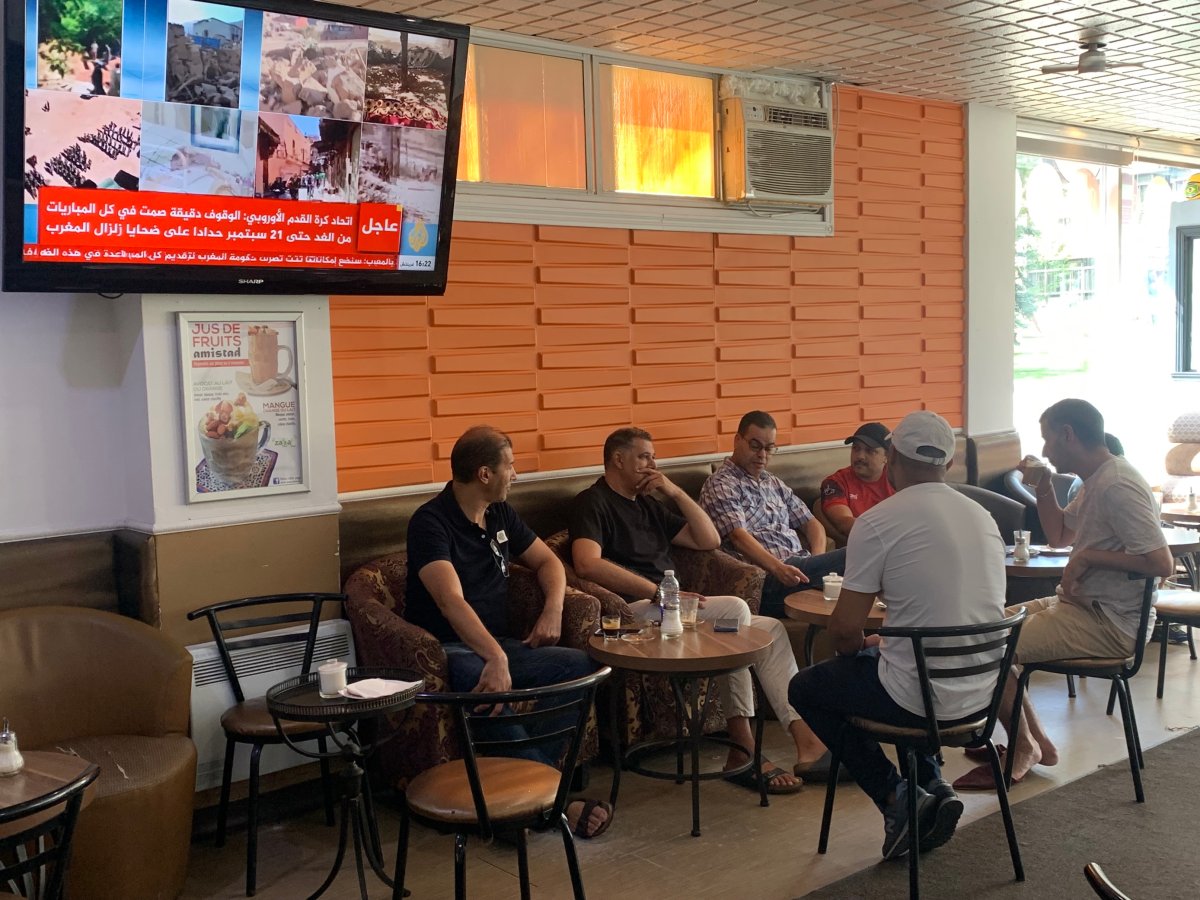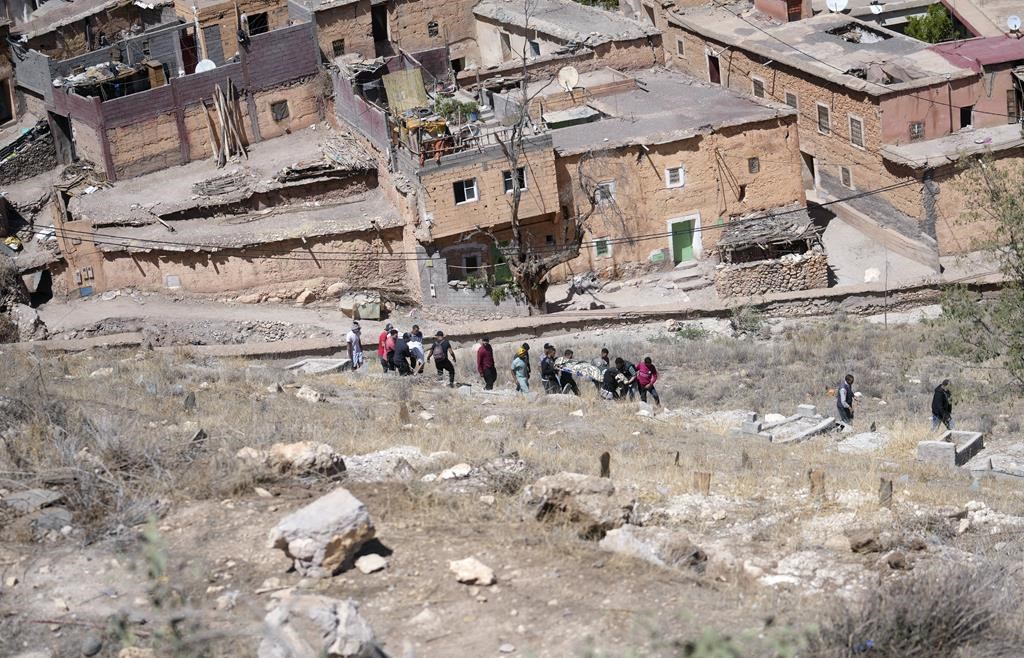Rescuers were searching for survivors of a powerful earthquake that struck overnight about 50 miles from the city of Marrakesh.
Sept. 9, 2023
Marrakesh, Morocco

Search and rescue efforts were intensifying on Saturday night, nearly 24 hours after a powerful and deadly earthquake surged across western Morocco, as emergency teams raced to prevent more deaths in remote mountain villages that are not easily accessible.
The quake, which struck in the High Atlas Mountains shortly after 11 p.m. on Friday, has killed more than 2,000 people and raised the specter of a humanitarian disaster in a seismically vulnerable area of Africa.
The office of King Mohammed VI said that he had ordered the government to rapidly provide shelter and rebuild houses for those in distress, “particularly orphans and the vulnerable,” but that certain areas were inaccessible during darkness, preventing rescue workers from reaching them until after dawn on Sunday. The king also did not clarify whether Morocco would formally request foreign assistance to allow outside rescue teams to intervene.
At least 2,012 people were killed, according to Morocco’s Interior Ministry, and at least 2,059 were injured, more than 1,400 of them critically. The quake, which had a magnitude of at least 6.8 according to a preliminary report from the United States Geological Survey, was the strongest to hit the area in more than a century.
“I never felt anything like this in my life,” said Raja Bouri, 33, who lives in the outskirts of Marrakesh. “It felt like a plane fell on me..”
The temblor was indiscriminate in its demolition, rippling through the densely populated medinas of Marrakesh and the rural villages ringing the city, where walls of earthen homes shook, cracked and collapsed. Some roads have been blocked by landslides, said Sami Fakhouri, the acting head in Morocco of the International Federation of Red Cross and Red Crescent Societies.
Local news media posted images of rubble-strewn streets and footage of people panicking as the shaking began. Some residents returned to their apartments after the quake ended, but many others in areas near the quake’s epicenter, fearful of aftershocks, spent the night sleeping on the streets.
“My husband and four children died,” one woman told Moroccan state television. “Mustapha, Hassan, Ilhem, Ghizlaine, Ilyes. Everything I had is gone. I am all alone.”
Here’s what to know about the earthquake:
France, a former colonial power in Morocco, was among the first to offer help. The French Embassy in Morocco opened a crisis hotline and the mayor of the southern French port city of Marseille said that he would send firefighters to help with rescue efforts in Marrakesh, a sister city.
Moroccan authorities announced three days of national mourning to honor victims of the deadly earthquake. In a statement carried by the state news agency, the office of King Mohammed VI said that after a crisis meeting with officials in Rabat, the capital, he had ordered the government to rapidly provide shelter and rebuild houses for those in distress, “particularly orphans and the vulnerable.”
Several governments and charity groups, including Doctors Without Borders, have offered to send aid and rescue teams. Even countries with a history of conflicted relations with Morocco — like Israel and Algeria — have pledged to provide assistance. Here’s how to help.
Marrakesh is known for its old city, a UNESCO World Heritage Site that was founded in the 11th century and which attracts tourists with its open-air markets, uneven cobblestone streets and labyrinthine passageways.
The precise strength of the quake was not yet fully clear. The U.S. Geological Survey estimated it at 6.8. But a Moroccan agency said it measured 7.2., which the U.S.G.S. said could be more accurate. Initial readings of magnitude are measured automatically, and need to be revised by seismologists.
Natasha Frost, Aurelien Breeden and Maya Wei-Haas contributed reporting.

reporting from Marrakesh, Morocco
The death toll from the earthquake has reached at least 2,012 people, according to Morocco’s Interior Ministry late Saturday night.
READ ON
Photos: Scenes From Morocco’s Deadly Magnitude-6.8 Earthquake - The New York Times (nytimes.com)
Historic buildings damaged from Atlas Mountains to Marrakech
The Associated Press · Posted: Sep 08, 2023
A rare, powerful earthquake that struck Morocco toppled buildings in mountainous villages and ancient cities not built to withstand such force. More than 2,000 people were killed, and the toll is expected to rise as rescuers struggled Saturday to reach hard-hit remote areas.
The 6.8-magnitude quake, the biggest to hit the North African country in 120 years, sent people fleeing their homes in terror and disbelief late Friday.
One man said dishes and wall hangings began raining down, and people were knocked off their feet. The quake brought down walls made from stone and masonry, covering whole communities with rubble.
A 6.8-magnitude earthquake in Morocco killed more than 2,000 people and caused significant damage in Morocco — including in Amizmiz, a town south of Marrakech located near the epicentre of the quake.
The devastation gripped each town along the steep and winding switchbacks of the High Atlas in similar ways: homes folding in on themselves and mothers and fathers crying as boys and helmet-clad police carried the dead through the streets.
Remote villages like those in the drought-stricken Ouargane Valley were largely cut off from the world when they lost electricity and cellphone service. By midday, people were outside mourning neighbours, surveying the damage on their camera phones and telling one another "May God save us."

A family sits outside their home after an earthquake in Moulay Brahim village, near Marrakech, Morocco, on Saturday. A rare, powerful earthquake struck Morocco late Friday night, killing more than 2,000 people and damaging buildings from villages in the Atlas Mountains to the historic city of Marrakech.
Hamid Idsalah, a 72-year-old mountain guide, said he and many others remained alive but had little future to look forward to. That was true in the short-term — with remnants of his kitchen reduced to dust — and in the long-term — where he and many others lack the financial means to rebound.
"I can't reconstruct my home. I don't know what I'll do. Still, I'm alive, so I'll wait," he said as he walked through the desert oasis town overlooking red rock hills, packs of goats and a glistening salt lake. "I feel heartsick."
Famed mosque damaged
In historic Marrakech, people could be seen on state TV clustering in the streets, afraid to go back inside buildings that might still be unstable.
The city's famous Koutoubia Mosque, built in the 12th century, sustained damage, but the extent was not immediately clear. Its 69-metre minaret is known as the "roof of Marrakech."
Moroccans also posted videos showing damage to parts of the famous red walls that surround the old city, a UNESCO World Heritage site.

At least 2,012 people died, mostly in Marrakech and five provinces near the quake's epicentre, Morocco's Interior Ministry reported Saturday evening. Another 2,059 people were injured — 1,404 critically — the ministry said.
"The problem is that where destructive earthquakes are rare, buildings are simply not constructed robustly enough to cope with strong ground shaking, so many collapse, resulting in high casualties," said Bill McGuire, professor emeritus of geophysical and climate hazards at University College London.
About a dozen Canadians attending a UNESCO conference in Marrakech are safe, according to John Norman, the mayor of Bonavista, N.L. He was awoken in his hotel room Friday night.
"I think everyone is in a bit of shock," Norman, who is also the chair of the Discovery UNESCO Global Geopark on the Bonavista Peninsula, told CBC News.
Canada's foreign affairs minister, Mélanie Joly, urged Canadians in Morocco to register with Global Affairs Canada. She said Canadians there who need help should contact the federal Emergency Watch and Response Centre, which can provide emergency consular assistance.
Marrakech resident Amanda Mouttaki was talking to family members living outside the country when the earthquake hit on Friday. She initially thought a plane might be coming down, as she and her husband live near the airport.
"Things started falling off the walls," Mouttaki, who is originally from Michigan, told CBC News Network on Saturday.She and her husband quickly grabbed their five-year-old son and fled into the street. "Everybody was on the streets, just crying and trying to figure out what happened," she said.
WATCH | Marrakech resident describes earthquake:'Things started falling off the walls,' Marrakech resident says about earthquakeDuration1:38Amanda Mouttaki, who lives in the newer part of Marrakech, describes what happened when a 6.8-magnitude earthquake shook the Moroccan city.
In a sign of the huge scale of the disaster, Morocco's King Mohammed VI ordered the armed forces to mobilize specialized search-and-rescue teams and a surgical field hospital, according to a statement from the military.
The king said he would visit the hardest-hit area on Saturday, but despite an outpouring of offers of help from around the world, the Moroccan government had not formally asked for assistance — a step required before outside rescue crews could deploy.

The epicentre of Friday's tremor was near the town of Ighil in Al Haouz Province, roughly 70 kilometres south of Marrakech. Al Haouz is known for scenic villages and valleys tucked in the High Atlas.
Police, emergency vehicles and people fleeing in shared taxis spent hours traversing unpaved roads through the High Atlas in a stop-and-go manner, often exiting their cars to help clear giant boulders from routes known to be rugged and difficult long before Friday's earthquake.
Newfoundlanders in Morocco safe but in 'shock' after powerful earthquake strikes historic city
In Ijjoukak, a village in the area surrounding Toubkal, North Africa's tallest peak, residents estimated nearly 200 buildings had been levelled.
Couch cushions, electric cords and grapes were strewn in giant piles of rubble alongside dead sheep, house plants and leaning doors wedged between boulders. Relatives from the town and those who had driven from major cities cried while they wondered who to call as they reckoned with the aftermath and a lack of food and water.

"It felt like a bomb went off," 34-year-old Mohamed Messi said.
Morocco will observe three days of national mourning with flags at half-mast on all public facilities, the official news agency MAP reported.
World offers help
World leaders offered to send aid or rescue crews as condolences poured in from the G20 summit in India, countries around Europe, the Mideast and beyond.
Turkey, where powerful earthquakes in February killed more than 50,000 people, said it was ready to provide support. France and Germany, with large populations of people of Moroccan origin, also offered to help.
In an exceptional move, neighbouring Algeria offered to open its airspace to allow eventual humanitarian aid or medical evacuation flights to travel to and from Morocco.
Algeria closed the airspace when its government severed diplomatic ties with Morocco in 2021 over a series of issues. The countries have a decades-long dispute involving the territory of Western Sahara.

The U.S. Geological Survey said the quake had a preliminary magnitude of 6.8 when it hit at 11:11 p.m. local time, with shaking that lasted several seconds.
The U.S. agency reported that a 4.9-magnitude aftershock hit 19 minutes later. The collision of the African and Eurasian tectonic plates occurred at a relatively shallow depth, which makes a quake more dangerous.
Earthquakes are relatively rare in North Africa. Lahcen Mhanni, head of the Seismic Monitoring and Warning Department at the National Institute of Geophysics, told 2M TV that the earthquake was the strongest ever recorded in the region.
In 1960, a 5.8-magnitude tremor struck near the Moroccan city of Agadir, causing thousands of deaths. That quake prompted changes in construction rules in Morocco, but many buildings — especially rural homes — are not built to withstand such tremors.
In 2004, a 6.4-magnitude earthquake near the Mediterranean coastal city of Al Hoceima left more than 600 dead.
Friday's quake was felt as far away as Portugal and Algeria.

With files from Jessica Singer, CBC News, The Canadian Press and REUTERS
By Mitchell Bailey
Updated September 9, 2023

Recent reports from Morocco’s interior minister indicate that the death toll has now reached 1,037, as reported by the BBC. The epicentre of the 6.8 magnitude quake was in the country’s High Atlas Mountains region, which is about 71km southwest of the popular tourism destination of Marrakech.
On an average weekend morning, the La Amistad coffee shop in Montreal would be playing soccer games, but on Saturday it was all about the news.
“It’s a dark Saturday,” said Mouslih Yassine, a Moroccan Montrealer who works at the shop.
He said the earthquake is all his clients are talking about

“Since last night at 7 p.m., everyone is talking about those who are injured, those who died. It really is sad, we simply tried to call all our family members yesterday to see if they are healthy and okay,” he said.
Yassine’s family is in Casablanca, the largest city in the North African country, where the impacts of the earthquake were also felt. He said that after the earthquake, his family slept on the street for fear of a second one.
“They were shocked, it was surprising to them,” Yassine said. “We’re hoping it stops here. We really are hoping.”
The convulsions were felt all the way into the capital city of Rabat, which is located about 350 kilometres north of the epicentre.
Noureddene Mosbah, who has family in Marrakech, said some people woke up with “nothing” in the impacted areas.
“They have no help,” Mosbah said, “It’s very, very terrible.”
He says his friend told him on the phone this morning that he doesn’t have water or food.
The majority of victims are believed to be in remote villages near the mountainous area.

Serge Sasseville, a Montreal city councillor, is currently vacationing in Morocco and was attending a gathering at a friend’s house about 25 minutes outside downtown Marrakesh when the earthquake first hit.
“It was really, really scary,” he said, adding that he, alongside a group of friends, gathered under blankets and lawn chairs outside while they awaited an expected aftershock following the first rumbling.
“You’re not in control of anything, you’re waiting for the worst to happen.”
The U.S. Geological Survey reported a 4.9 magnitude aftershock arrived 19 minutes later.
Sasseville said although no one was injured in his immediate circle, his friend’s house had sustained some damage and lost electricity during the earthquake. After sheltering in place for hours, he commuted back to his hotel in Marrakech at about 4:30 a.m. on Saturday.
Upon returning to the city, Sasseville said he witnessed hundreds of people sleeping on sidewalks and in parks. He said as of now, there have been fewer causalities inc Marrakech in comparison to harder-impacted areas outside of the city.
“The previous official toll from the Department of Interior was 820 and I could see that in Marrakech, out of the 820 deaths, there were 13,” he said during an interview with Global News on Saturday morning.

Many tourist attractions have experienced significant damage in the city’s main square, including the historic Jemaa el Fnaa mosque, which saw some of its tower partially collapse.
“My heart is with the family and friends of the people that were killed and wounded,” Sasseville said.
“Moroccans are very resilient people … Nobody has ever lived (through) an earthquake of such magnitude in Morocco, it’s terrible, I went through some minor earthquakes in the province of Quebec but that’s nothing compared to what happened last night in Morocco.”
Quebec Premier François Legault expressed his condolences in a social media post on Saturday.
“All my thoughts are with the Moroccan people,” he said.
There has been nothing bigger than a 6.0 magnitude earthquake within 500 kilometres of Friday night’s epicentre since before 1900.
Because it struck at 23:11 local time, it’s projected that the death toll will be larger than other earthquakes of similar intensity, as many people were likely to be inside affected buildings.
It’s estimated about 1,200 people have sustained injuries from the incident, but that official number is expected to rise.
Federal Foreign Affairs Minister Mélanie Joly has urged Canadians in Morocco to register with Global Affairs Canada after a deadly earthquake struck the country late Friday night.
In a tweet this morning, Joly says Canada’s thoughts are with all of those affected by the devastating quake.
She says Canadians in Morocco who need help should contact the federal Emergency Watch and Response Centre, which can provide emergency consular assistance.
Global Affairs Canada says it is working on an update about how many Canadians were in Morocco at the time of the disaster.
— With files from Global News’ Gloria Henriquez and the Canadian Press

No comments:
Post a Comment